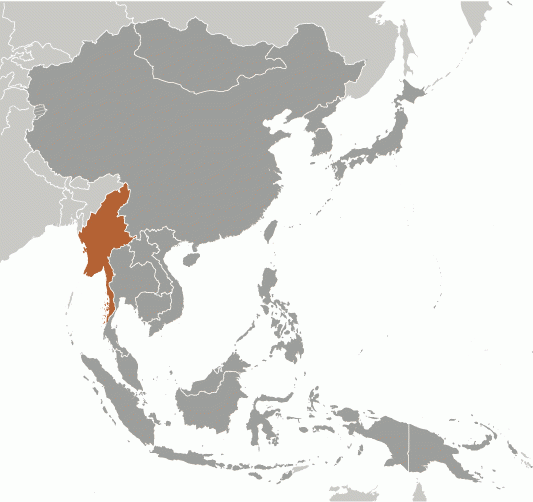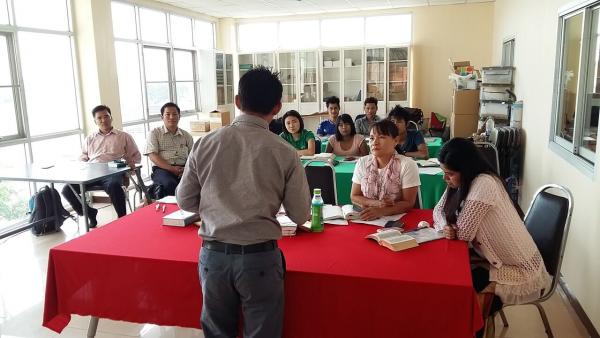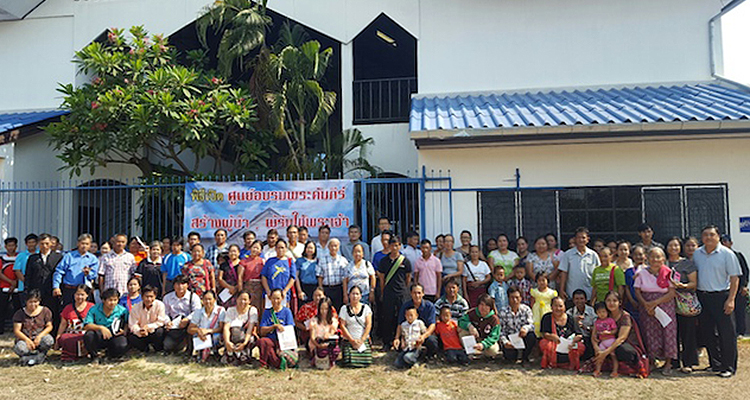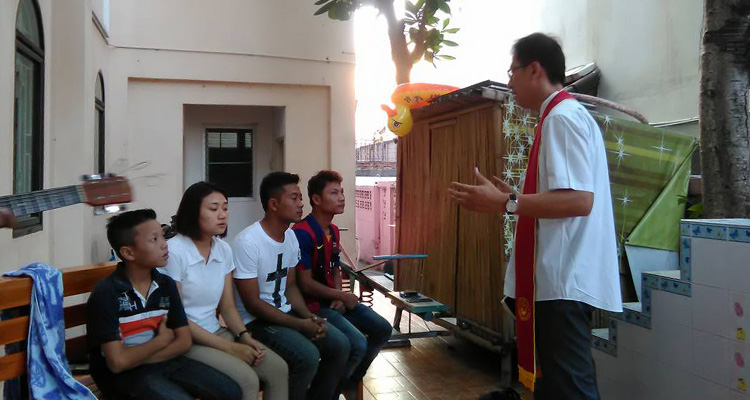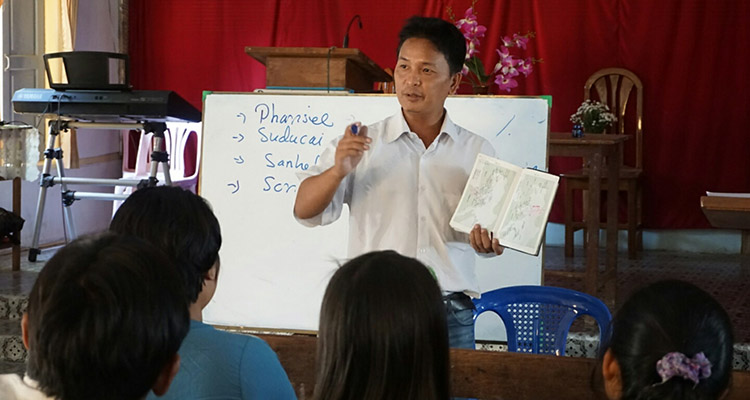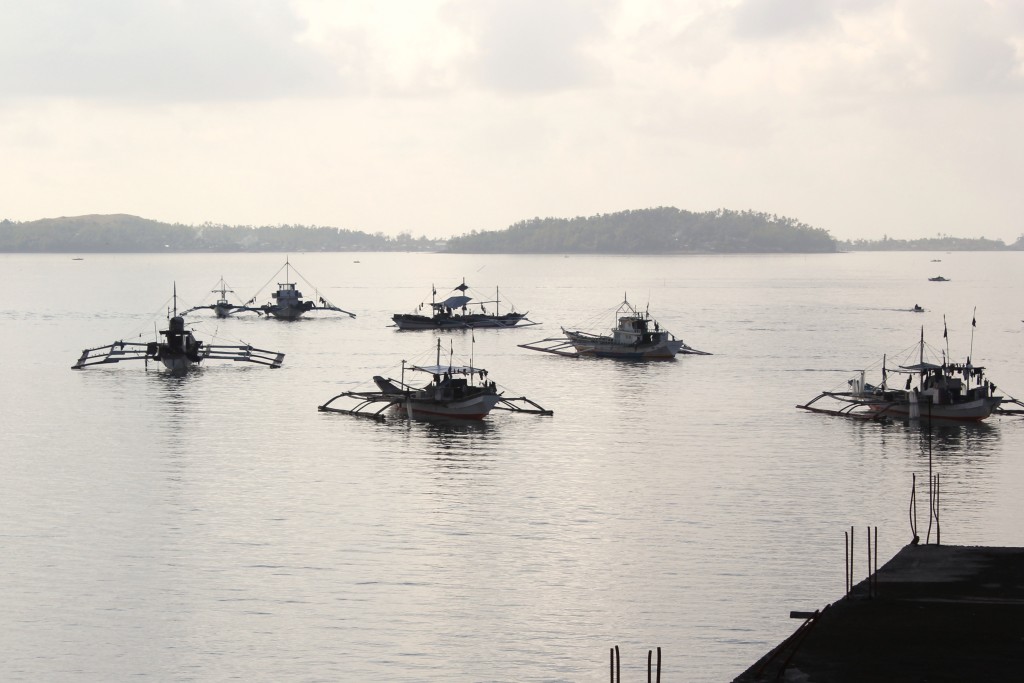Seeds of the gospel were planted by the first American Christian missionary to Myanmar’s ethnic minority Chin people in the 1800s. Those seeds are bearing fruit in major U.S. cities, Thailand and around the world.
Although they are a small ethnic group in Myanmar (formerly called Burma), a diaspora of hundreds of thousands of Chin people are spreading across Asia and now the West. Those among them who are Christians are planting churches wherever they go.https://weedinfocus.com
Up to 170,000 Chin people have immigrated to the United States. One of those people, Zozum, pastor of a Chin church in Indianapolis, started his journey like many do: as a refugee.
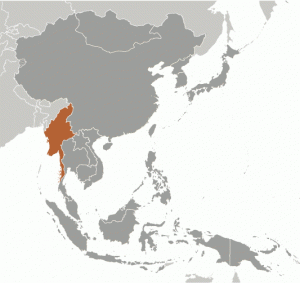 In 1994, Zozum went to New Delhi to study the Bible. Delhi was a center of political activism. By going there Zozum was at risk of being perceived as connected with a rebel movement. But his sense of ministry calling was strong.
In 1994, Zozum went to New Delhi to study the Bible. Delhi was a center of political activism. By going there Zozum was at risk of being perceived as connected with a rebel movement. But his sense of ministry calling was strong.
Since 1989 when Zozum had become a Christian on what he thought would be his deathbed, he wrestled with God about his calling to become a pastor. Although he grew up in a Christian home, Zozum had frequently been in poor health. Thus, his path to education as a pastor was difficult. It was made more so when, still in Dehli, he received a phone call from his brother warning him that he could not come back to Myanmar. Zozum was suspected by the Myanmar government of being a dangerous rebel.
He applied as a refugee under UNHCR, the United Nations Refugee Agency, and after 15 years was granted entry to the United States.
Zozum resettled in Indianapolis, where as many as 15,000 people from Myanmar now live. There, he became leader of a Chin congregation, the Matu Bethlehem Christian Fellowship. While the people were dedicated to meeting, it was difficult to find an appropriate space for worship. Zozum heard about The Point Church of the Nazarene in Greenwood, and went to meet with its pastor, Steve Rhoades.
Zozum and Rhoades spoke for several hours. Rhoades was happy to offer his building, but Zozum felt it would be difficult for his congregation to find transportation the 25 minutes’ distance from where most of his church members lived. The next day, Rhoades took him to meet with Ray McCrary, pastor of Indianapolis Southside Church of the Nazarene, and Ron Blake, the Indianapolis district superintendent. They discussed whether his congregation could worship at Indianapolis Southside Church of the Nazarene, which is located right in the midst of the Chin immigrant population in Indianapolis.
McCrary wanted to make sure the congregations shared similar doctrines.
“[Zozum] said, ‘I’m sitting here today because the Church of the Nazarene really intrigues me. I’ve been studying about the doctrine and it attracts me, and I would like to know more about the church.”
The two pastors entered into a mentoring relationship. They read several books together about holiness, a signature emphasis of the Nazarene denomination, and have continued to meet each week for discipleship and encouraging one another.
The Matu Bethlehem church and the Southside Nazarene church now share one building. By having a place that does not limit their numbers, the Matu Bethlehem congregation has grown to 125 in average attendance for its Sunday afternoon services.
 Although they are separate congregations within one building, the two groups are gradually partnering in different ways. The children from both churches meet together for Sunday school, and recently the two youth groups merged, as well. The congregations occasionally join for baptisms, potlucks and other social activities.
Although they are separate congregations within one building, the two groups are gradually partnering in different ways. The children from both churches meet together for Sunday school, and recently the two youth groups merged, as well. The congregations occasionally join for baptisms, potlucks and other social activities.
“God is bringing the mission field to us,” McCrary said. “It has been a journey (for the Southside congregation). In years past, this area has been a very white, English-speaking population. It’s no longer that. We have the choice of just shriveling up and dying, or ministering to the people who are here.”
Right now the two congregations continue to worship separately due to language and worship-style differences. But pastors Zozum and McCrary dream of eventually merging the congregations for morning worship. They continue gently working to help them all catch the same vision.
McCrary said of Zozum’s flock, “They’ve been very slow in integrating because they feel their lack of understanding of the culture, so they stay within their group. Because of their oppression, they are maybe a little suspicious of other people. It’s a process.”
To minister to the needs of recent Chin immigrants, Southside has opened its space during the week for English language, life skills and cultural adaptation classes provided by the Warren Township School System. The idea was suggested by one of the Chin people.
“My people need training in basic life skills,” the man had told McCrary. “These people will not be going back to Myanmar except to visit their family. They are going to have to integrate into the American culture.”
McCrary also began a discipleship class together with Zozum to provide spiritual training for some from Matu Bethlehem.
The churches’ relationship is not just practical, but has been an expression of love for both congregations.
“Once in a month we have a fellowship with the American church members and Matu church together,” said Nissa, a member of the Matu congregation. “They bring food and we also bring food, and we have some meeting and fellowship. We sing songs and pray and preach, and then after that we are eating together. We all enjoy it.
“These English-speaking people are very friendly,” she added. “Really they love us and show their love [by sharing] whatever we need.”
International Myanmar church planting leads to expanded theological education
Khunjar (right in photo) had been preparing for full-time ministry. She had graduated from a Bible college and a discipleship training program in her home town in the Shan State, Myanmar. But then, three years ago, Khunjar and her family immigrated to Bangkok, Thailand, to look for work.
“My mom always prayed for me,” Khunjar said. “She always encouraged me to stop working and work for ministry.”
Then, in 2015, her mom died in a car accident. Khunjar was helpless to deal with this case in a foreign land.
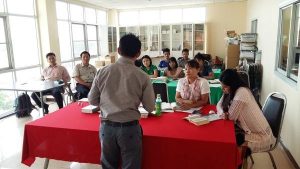 Bill and Mill Kwon, who are Nazarene leaders in Thailand, came to know her during this hard time in her life. Khunjar began assisting in the Kwons’ ministries by translating for and connecting them to other Myanmar migrant workers in the Bangkok area. During six months of their ministry, four house churches were born.
Bill and Mill Kwon, who are Nazarene leaders in Thailand, came to know her during this hard time in her life. Khunjar began assisting in the Kwons’ ministries by translating for and connecting them to other Myanmar migrant workers in the Bangkok area. During six months of their ministry, four house churches were born.In this period, Khunjar realized the calling of the Lord.
“When my mom passed away, God reminded me of her prayer,” she said. “It is not by chance to be involved in this ministry in Thailand, but the leading of the Lord.”
On January 2016, Khunjar received her first Nazarene minister’s district license from the Myanmar District and transferred her license to the Thailand District. A district license is a recognition from the Nazarene district’s leadership that a person is following God’s call by serving in pastoral ministry.
Her house church has grown, and to gain more space it rented a three-story building in Bangchalong area. In walking distance, there are thousands of Myanmar migrant workers and their families. Pastor Khunjar and her church have a passion to reach the non-Christian population in Bangkok. The church now opens nursery and kindergarten for the Myanmar children.
Throughout Thailand, where the Kwons are based, the Myanmar church is exploding with the same church multiplication that follows the spread of Myanmar Christians around the world. As the Kwons became associated with the Myanmar immigrants in Thailand, they discovered that Myanmar immigrants are also planting churches in Singapore, across Asia and now in the West.
 Myanmar’s population is nearly 90 percent Buddhist; just 6 percent identify as Christian. Yet, because of the work of Christian missionaries who first came to Myanmar’s Chin state in the 1800s, today the majority of the Chin people, an ethnic minority group, are Christian.
Myanmar’s population is nearly 90 percent Buddhist; just 6 percent identify as Christian. Yet, because of the work of Christian missionaries who first came to Myanmar’s Chin state in the 1800s, today the majority of the Chin people, an ethnic minority group, are Christian.They have paid a price for their belief. The BBC and Human Rights Watch report that the Chin are Myanmar’s most persecuted people group.
“The major reasons for their diasporic movement is: 1. Economic, 2. Safety, 3. Religious freedom,” said Bill, who also serves as the superintendent of the Myanmar District.
When Christians leave Myanmar for economic or other reasons, they often choose new homes where they can safely practice their faith.
 “Wherever they go they naturally start churches because that’s part of their life,” said Ray McCrary, pastor of a Nazarene church in south Indianapolis, where more than 15,000 Chin immigrants live. His American congregation is partnering with a local Myanmar Chin church, and he meets weekly for discipleship with its pastor, who came to the United States as a refugee (read the story).
“Wherever they go they naturally start churches because that’s part of their life,” said Ray McCrary, pastor of a Nazarene church in south Indianapolis, where more than 15,000 Chin immigrants live. His American congregation is partnering with a local Myanmar Chin church, and he meets weekly for discipleship with its pastor, who came to the United States as a refugee (read the story).“Just as the early Christians were dispersed from Jerusalem, it became natural to start churches and reach out to their friends,” McCrary added.
The Nazarene church in Myanmar itself has declared a new mission: “Reaching Myanmar People for Christ in the NATIONS,” wherever they might be, Bill said.
In response to this clear church planting movement, the Southeast Asia Nazarene Bible College (SEANBC) started a Myanmar course of study in Bangkok with 28 students registered.
Bill opened an SEANBC extension center in Khunjar’s church, which trains Myanmar migrant workers as disciples. Currently there are eight Myanmar migrant workers who received a district license from the Thailand District.
 The Nazarene theological course of study, which prepares ministers around the world for ordination, has been translated into Burmese, one of four majority languages of Myanmar, and there are plans for electronic courses of study through SEANBC to reach Chin and other Myanmar ethnic ministers in training around the world, including the United States.
The Nazarene theological course of study, which prepares ministers around the world for ordination, has been translated into Burmese, one of four majority languages of Myanmar, and there are plans for electronic courses of study through SEANBC to reach Chin and other Myanmar ethnic ministers in training around the world, including the United States.In addition the Chin congregation that is sharing space and fellowship with Southside Church of the Nazarene in Indianapolis, several other Nazarene churches in the U.S. are becoming aware of local congregations of Myanmar immigrants and seeking ways to support them.
Pastor Steve Rhoades, of The Point Church of the Nazarene in Greenwood, outside of Indianapolis, Indiana, discovered the concentration of Myanmar immigrants in his community and has sought them out.
In some cases, there were churches in his community with as many as 70 people meeting in homes for worship. The Point offered its building to them and arranged a plot for gardening, one of the activities that Chin people enjoy and excel at. They also recognized their accomplished music skills through listening to their worship services.
 Rhoades has also helped to network local Nazarene churches with Myanmar Nazarene groups in Texas, Oklahoma, Kentucky, Georgia and Colorado. Several Myanmar congregations in other states are in discussion with local Nazarene leaders about joining the denomination, he said.
Rhoades has also helped to network local Nazarene churches with Myanmar Nazarene groups in Texas, Oklahoma, Kentucky, Georgia and Colorado. Several Myanmar congregations in other states are in discussion with local Nazarene leaders about joining the denomination, he said.Established Nazarenes have the opportunity to help connect diaspora communities and assist them in starting churches. As ethnic groups gather together in churches, they are able to share their joys and struggles and encourage one another.
“The opportunities are great,” Bill said. “People are responding, people are opening their homes for prayer. This opportunity is hard to find in their motherland. Diaspora is a great opportunity for gospel. We need to both reach unreached Myanmar communities in Thailand, and train migrant Christian workers as disciples to reach their own people in Thailand.”
Asia Theological Association Welcomes SEANBC as Associate Member!
Thailand: It is with great joy that we receive news from Southeast Asia Nazarene Bible College (SEANBC) Chancellor Dr. Donghwan (Bill) Kwon that their application for membership with the Asia Theological Association (ATA) has been approved! As of March 2017, SEANBC is now an Associate Member of the ATA.
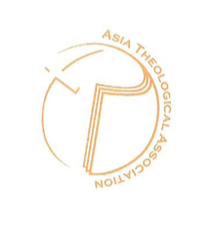
Asia Theological Association (ATA) is composed of theological educational institutions, committed to evangelical faith and scholarship, which are networking together, to serve the Church in equipping the people of God for the mission of the Lord Jesus Christ
Congratulations to SEANBC! Please pray for the faculty, staff and students as they strive to make the college even more excellent, while continuing the mission of making Christlike disciples.
-Submitted by: Dr. Bill Kwon
SEANBC reopens teaching center

More than 100 people from six different churches arrived in northern Thailand to celebrate the reopening of the Southeast Asia Nazarene Bible College Maetang Center May 10.
At least a dozen pastors attended, each with a choir team. There were also a total of 19 students who are taking part in the next Pastoral Course of Study class being taught by Thailand District Superintendent Tanongsak Pong-oodta.
SEANBC Chancellor Bill Kwon was present for the celebration and brought a message from 2 Timothy 2:2, “… entrusting to reliable people who will also be qualified to teach others.”
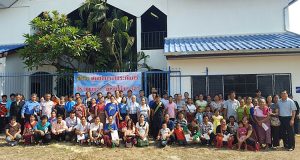 “This truly set the tone for the reopening of the center as its mission is to train up new leaders, entrusting to them the mission of making Christlike disciples from this generation to the generations to come,” said Samuel Yangmi, a missionary to Thailand.
“This truly set the tone for the reopening of the center as its mission is to train up new leaders, entrusting to them the mission of making Christlike disciples from this generation to the generations to come,” said Samuel Yangmi, a missionary to Thailand.Asia-Pacific Regional Director Mark Louw also anticipates the impact the reopening will have.
“I’m enthusiastic and optimistic about the future of the church in Thailand, specifically in this instance in northern Thailand as a result of the reopening of the teaching center,” he said.
—Church of the Nazarene Asia-Pacific Region
New year celebration leads to baptisms in Myanmar

April marks the new year in most South Asia and Southeast Asian countries. While most of Thailand, where Southeast Asia Nazarene Bible College’s main campus is located, celebrates the new year through the Songkran Festival, the college decided to celebrate things differently.
During the Sonkgran break, the Myanmar campus offered a class called Introduction to the New Testament as part of an extension program headed by Professor Peter Lalpek Mawia.
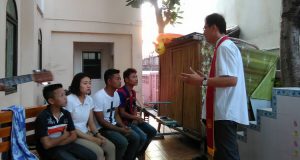 “The program is very unique because it is intended to train and educate lay and bivocational pastors in reaching the Burmese for Christ in Thailand,” said Bill Kwon, SEANBC chancellor. “The class had 14 students, with varying educational levels, ages, and genders all having one thing in common: their heart for Christ!”
“The program is very unique because it is intended to train and educate lay and bivocational pastors in reaching the Burmese for Christ in Thailand,” said Bill Kwon, SEANBC chancellor. “The class had 14 students, with varying educational levels, ages, and genders all having one thing in common: their heart for Christ!”The class also paved the way for changed lives. During the class, four students expressed their desire to follow Christ and to be baptized.
Kwon officiated the baptism service.
“After the baptism, Win Win, one of the candidates, testified to be a disciple of Christ to begin her ministry in Bangkok,” Kwon said. “She is now actively engaged in house church planting. It is such a blessing to have a leader with a vision to reach the immigrant population for the Lord.”
The Songkran Festival is also a time for salvation camps where Christians share the gospel through evangelism and the teaching of basic Christian beliefs. Nazarene churches are actively engaged in offering salvation camps in Yangon and other parts of Myanmar.
“Through these efforts, many new souls are saved for the Lord,” Kwon said.
—Church of the Nazarene Asia-Pacific Region
Southeast Asia NBC begins Myanmar extension center

Southeast Asia Nazarene Bible College, located in Chaing Mai, Thailand, announced its first extension program, located in Karen State, Myanmar. The program is headed by SEANBC Academic Dean Dinga and Yangon Campus Dean of Students Enkawla, who are together teaching two courses.
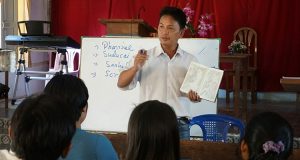 Students from four local villages are taking advantage of this theological training and have committed to completing the pastoral Course of Study leading to ordination. SEANBC is anticipating more classes and attendees as the program continues.
Students from four local villages are taking advantage of this theological training and have committed to completing the pastoral Course of Study leading to ordination. SEANBC is anticipating more classes and attendees as the program continues.After the classes, which are held from 8 a.m. to 4 p.m., Dinga and Enkwala visit neighbors and hold prayer in their homes. The principals also had the opportunity to preach in local churches and lead Sunday worship service. Group songs and children’s Bible recitation were among the activities during this fellowship. They also had the opportunity to go to the site of a house that recently burned in order to bless the family. Dinga and Enkwala prayed for the families and proclaimed God’s victory in the area.
—Church of the Nazarene Asia-Pacific Region
Hope rebuilds lives in Panay Island
Panay Island in Iloilo was one of the provinces greatly devastated by Typhoon Haiyan (also known as Typhoon Yolanda) in November 2013. Lives were lost, homes were uprooted and livelihood was destroyed. At this time of despair, people can’t help but live in doubt and wallow in misery.
However, there is a saying, “Hope is the only thing stronger than fear.” It is a driving force that would help people rebuild their lives with a positive attitude and a joyful disposition. Yes, that is what the people in Panay Island needed. HOPE.
World Vision Philippines wanted to embody that message. They desire to bring hope into the lives of the people in Panay Island. Following the typhoon’s aftermath, they started to help out by supplying construction materials to rebuild houses and schools. They provided small businesses and held trainings on entrepreneurship so the people could manage the livelihood programs that were given to them. They also put up water systems in communities and schools, and planted 20,000 seedlings to rehabilitate one of the island’s depleting shoreline area.
Fifteen months after Typhoon Haiyan, I was given the privilege to go to Panay Island and capture its developments on video. I was amazed by what I saw. There were no (if not a few) traces of mishap, and lives of the locals are now back to normal.
During the interviews, I have witnessed tears fall, when people recounted their ordeal and how they are very grateful for the support given to them by World Vision Philippines and other willing groups and individuals. Children couldn’t wait to go back to school, walk the halls and experience the facilities of their new building. Many have testified that the livelihood programs bestowed upon them gave them hope and helped them start anew.
I learned a lot of things from my documentation assignment in Panay Island. Yes, the people there were once victims of the typhoon, but with the help of others, they were able to get back on their feet.
What struck me the most from this experience was that no matter how big or small, our support can be a spark of hope to those in need.
Be that hope to someone today.
– Lenmark Santos, Video Department

